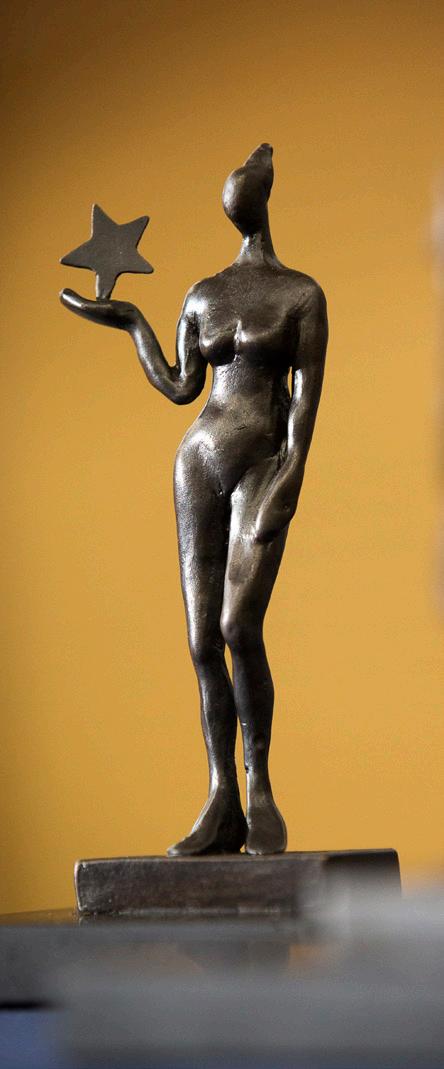
4 minute read
Ethics
The Ethics Council has had a successful start to the year, beginning with our annual Soapbox event, which proved a great way to start some discourse about ethical issues around the School.
Additionally, we are excited to be implementing a variety of events and initiatives as the year progresses and cannot wait to share these with students, staff and the Dio community.
Our Soapbox event was a fantastic success, and it was splendid to see so many students getting involved to ‘speak up and speak out’. In particular, the Junior High students showed enthusiastic interest and were brave in sharing their perspectives on a range of topics. We were so impressed with the variety of subjects, ranging from the use of AI and Chat GPT to feminism and our relationship with education and tests, all of which involve topical conversations surrounding them. As young women, it is so important that we not only have a safe platform to share ideas we care about, but also use those opportunities to share our voices and challenge ideas. We encourage all students to continue to get involved with Soapbox and make the most of it as an opportunity, as we think the benefit of developing a greater understanding of ethical issues that underpin events in our society is invaluable.
The strength and interest of Junior High students could be seen in 28 semi-finalists who competed for the few places in the final. The finalists in the Junior High competition were Cici Wang (7NE), Hazel Mulligan (8CW), Alice Lott (9RO), Anya Taylor (10CO) and Emilia Young (10NE). Twelve Senior semifinalists competed, which is a disappointing number as it is so important that their views are heard. The finalists of the Senior School competition were Violet Tucker (11MI); Zara Tucker (12MI); Ella Millar (12 RO) who was unfortunately absent on the day, Bharathi Manikandan (13CO) and Sienna Kulatunga (13 CW). Congratulations to our 2023 winners, Anya Taylor and Sienna Kulatunga.
In keeping with our efforts to raise awareness about ethical issues, the Ethics Council is looking for ways to have students more involved with ethics. One initiative we have undertaken is writing a regular feature in the Dio On Campus (DOC) newsletter. Through this, we plan to highlight the ethical issues around students’ lives and give them questions to challenge their views while enabling them to critically think about the moral implications behind events in our society. A clear example is the use of AI and who should be held accountable for it when it goes wrong; or for instance, whether we can consider AI-generated art ‘real’ art. In this way, we hope to facilitate more ethical discussion.
An awesome team of Year 11 students (Violet Tucker, Holly Bricklebank, Isobella Baggaley, Jess Web, Scarlett Kirk and Charlotte Johnston) participated in the International Middle School Ethics Olympiad final on 23 February. They had initially taken part in the online competition, which involved 300 teams, winning the North Island competition in 2022. The team thus qualified for the final in which there were 40 qualifying teams from five participating countries – Australia, New Zealand, India, Canada and Singapore. There were also 20 judges from across the globe.
The team wrote about their silver medal-winning experience: “The competition helped us understand what we stood for and the topics we were passionate about. It was also interesting to hear and appreciate others’ thoughts and ideas. The competition was also a fantastic opportunity to meet students from around the world.

“Working as a team was also necessary. Beforehand, we made notes about each ethical case, making sure to recognise everyone’s points of view. Similarly, we had to make sure that everyone got an opportunity to speak up and share their ideas when competing. This teamwork was vital because we couldn’t talk over each other in the competition.
“Another aspect of the competition was the expert opinion of the judges, especially because many of them had participated in previous Ethics Olympiads. It was intriguing to hear their advice and views on ethical concepts after each round.
“We could not have achieved what we did without Ms Blumenfeld’s help and effort. She was so generous with her time and is very passionate about ethics. She taught us many ethical principles, showed us how to apply them in various situations, and challenged us to think outside the box.”
Students from Dio also competed in the Senior Ethics Olympiad that was held on 17 May. The Year 11 team mentioned in the above paragraph were placed second in the New Zealand competition and have been invited to the international final of the competition.
This term we held a Dio Thrift Sale in partnership with the Sustainability Council. The idea behind this venture was that students and staff donated a few items of good quality clothing that other students could then purchase for between three and five dollars. This initiative was designed to engage students in shopping ethically and buying second-hand, steering them away from ‘fast fashion’. All profits were donated to an environmental charity and the unsold clothing donated to the Anglican Trust for Women and Children.
We hope we can continue to ensure students see the importance of ethics and how ethical issues can be found in all aspects in our lives. The aim here is to provide students an opportunity to challenge their current thoughts and allow for critical thinking so that we can foster young women who are able to articulate and spark discussion about topical issues. In order to facilitate ethical thinking within the School, we have become one of the schools in Australasia that has a licence for the Ethics Olympiad competition. This will allow us to run our own face-to-face competitions and all teachers will have the programme available online. Subject-specific cases in science, technology, media, sport, for example, will enable teachers to integrate ethical cases/scenarios within their curriculum.
Lauren Chee, Ethics Prefect
Maisie Cavanagh, Deputy Ethics Prefect
Mackenzie Marlo, Deputy Ethics Prefect
Nina Blumenfeld, Director of Ethics
“The science of reading is a vast body of scientifically based research about reading and issues related to reading and writing. This research has been conducted over the last five decades across the world, and it is derived from thousands of studies conducted in multiple languages.”
Little Learners Love Literacy website 2023













